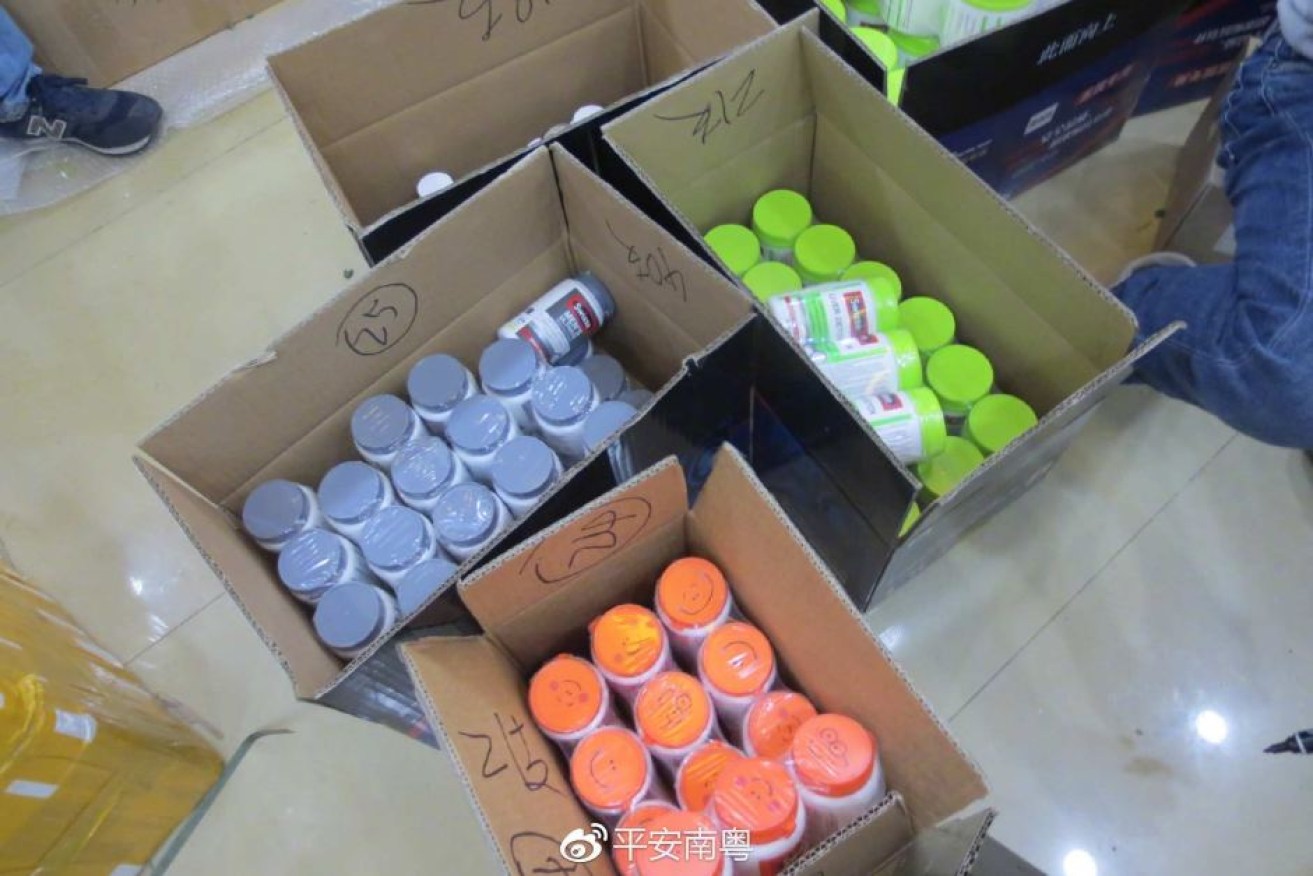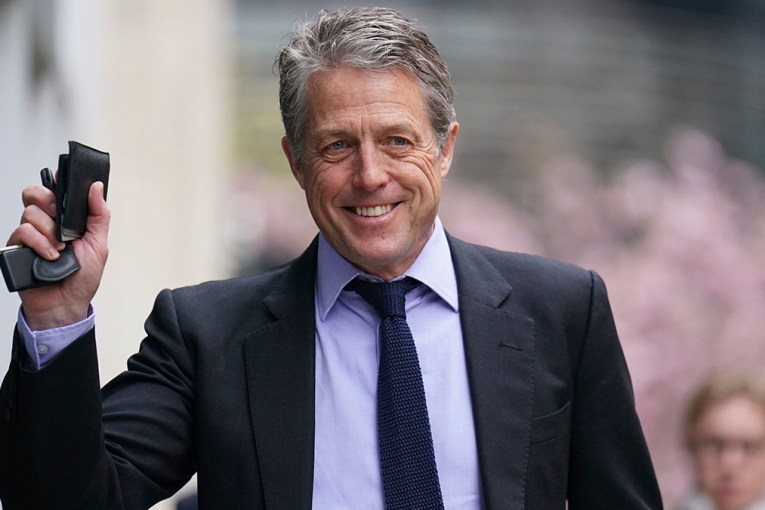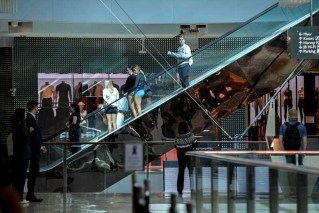Chinese police crack down on fake Australian brands

China is estimated to be the source of 70% of the world's trade-related counterfeiting. Photo: Guangdong Provincial Public Security Department
Police in southern China have seized more than 30 million yuan ($6.3 million) worth of counterfeit products, including large hauls of popular Australian-branded wines, vitamins, foods, and cosmetics.
In two separate operations, police confiscated fake Penfolds wines and Swisse and Blackmores supplements, among other products.
Guangdong Police said in a statement they “destroyed” four criminal groups comprising 22 suspects during the investigation into the fake supplements over the past two months.
A dozen of those suspects have been charged and further investigations are underway.
In the other case, police said they seized about $2 million worth of wines and dismantled “a criminal chain” of 13 suspects who sold cases of fake Penfolds mixed with real bottles.
Police said the criminal chain formally registered companies that were in charge of different stages of the operation, and mostly sold the counterfeits through e-commerce websites and social media platforms including WeChat.
Some counterfeit products sold for a 1000 per cent profit
Local paper The Southern Metropolis Daily quoted Guangdong Police as saying that the criminal groups used tag lines such as “overseas direct sales” for products from Australia, and “direct postage from overseas and franchise stores”, to attract customers.
Police added that some counterfeit products reportedly made about a 1000 per cent profit, even though they were selling for a 50 per cent discount compared to the real product.
For example, the criminal chain selling fake Penfolds wines reportedly bought generic wines for some 19 yuan ($4) and sold them as the famed Australian brand for 200-300 yuan ($42-$62), which was significantly cheaper than the 600 yuan market price ($125).
A spokesman for Penfolds owner Treasury Wine Estates encouraged customers to seek out authorised retail stores to buy their wines.
The company’s chief executive, Mike Clarke, told the Australian Financial Review earlier this year that it would stamp out operators who were producing copycat Penfolds wines.
The company has reportedly set up an internal investigations team and is working closely with authorities in China and Australia.
Counterfeiting rife as emerging middle class flexes spending power

Penfolds premium wines have been the target of Chinese counterfeiters. Photo: Getty
China’s rising middle class is driving increased demand for Australian-sourced foods and produce and a huge phenomenon known as “daigou”, fuelled by a network of tens of thousands of shoppers who buy goods in Australian stores to send to relatives, friends and social media followers in China.
However, many Chinese consumers are being cheated, with fake products offered by dishonest daigous who not only sell knock-off products but also attach fake documentation purporting to show the products were bought overseas.
An Austrade spokesman said while there had been significant improvement in the ability to register and protect intellectual property in China, Austrade was aware of companies that had still suffered commercial losses.
“Austrade always urges businesses entering the China market to address this issue early on in the process,” he said.
“That includes, where possible, registering trademarks, patents, copyright and trade secrets with relevant Chinese agencies.”
Sophisticated anti-counterfeit and traceability technology is also providing new solutions, the spokesman said.
He pointed to the Adelaide-based Beston Global Food Company, which had developed a three-part traceability, anti-counterfeit and global e-commerce platform, in part based CSIRO technology.
“The system allows consumers to buy online and offline, trace the origin of products, and verify their authenticity,” he said.
China is the world leader of counterfeit goods: report
Counterfeiting is rife around the world, but China is the world leader in producing and exporting counterfeit goods, according to a 2016 United States Chamber of Commerce report.
The report, titled Measuring the Magnitude of Global Counterfeiting, said China alone was estimated to be the source of more than 70 per cent of global physical trade-related counterfeiting, amounting to more than $US285 billion ($377 billion).
Last November, Chinese police raided a string of factories, warehouses and offices in an operation to crack down on counterfeit Peppa Pig products.

Peppa Pig products are a target for Chinese fakes. Photo: YouTube
They seized toothbrushes, toothpaste and shampoo among other children’s products branded with the British cartoon character that is hugely popular in China.
E-commerce giant Taobao, a subsidiary of Alibaba Group, is also fighting against counterfeits.
In the company’s Annual Report of Intellectual Property Protection 2017, the group said they assisted Chinese police in arresting more than 1600 suspects in the manufacturing and selling of counterfeit products and destroying more than 1300 manufacturing sites.
The report said they also shut down 240,000 online shops which were suspect in selling counterfeits in 2017.








